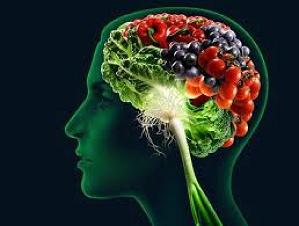
More evidence that low-calorie sweeteners are bad for your health
Studies show that artificial sweeteners can raise the risk of hypertension, metabolic syndrome, type 2 diabetes and heart disease, including stroke.

Eating well isn’t just good for your body – it’s good for your mind too.
Many disorders of the brain can be improved through careful attention to diet. These include ADHD, Parkinson’s, Alzheimer’s, schizophrenia, autism and bipolar disorder.
While there is no ‘one size fits all’ solution, it’s worth considering whether you are giving your mind what it needs to function at its best.
Here’s a quick list of foods that have been shown to help nourish and protect your brain.
Walnuts – rich in melatonin and essential fatty acids, walnuts could be a future ‘superfood’ because of the way they aid brain function.
Carrots – carotenoids in carrots are converted into Vitamin A, required for the brain’s physiological processes. All bright yellow and orange fruits and vegetables are good sources of beta carotene so include ore of these in your daily diet.
Healthy fats – The brain is a fatty organ and the fats in the brain help to ensure the proper function of neurotransmitters. Coconut oil is rich in medium-chain fatty acids (MCTs). MCTs are used to treat epilepsy and also placed in hospital feeding programs for newborns to help ensure good brain development. They may also have a role to play in helping to prevent Alzheimer’s.
Other healthy fats are important too. Omega-3 fatty acids are highly concentrated in the brain. Research indicates that they play a vital role in cognitive function (i.e. memory, problem-solving abilities) as well as emotional health. Other data shows low levels of omega-3s are linked to mood disorders. Salmon, herring, mackerel, anchovies, or sardines or high-quality cold-water fish oil supplements are a good way to get more. If you are a vegetarian try omega-3 supplements derived from algae.
Chocolate – contains cocoa-flavanols and other polyphenols, which increase blood flow, potentially leading to improved cognitive performance. A recent study found that drinking two cups of hot chocolate a day may help older people keep their brains healthy and their thinking skills sharp.
Berries – rich antioxidant anthocyanins and flavonoids that help protect the brain from free radical damage. They are also generally high in vitamin C. Studies show that dementia sufferers are often low in this important antioxidant nutrient.
Kale and beetroot – contain naturally occurring nitrate which is converted to nitric oxide, a key neuro-modulator and signalling molecule that dilates blood vessels in the brain producing increased blood flow.
Grape juice and wine – resveratrol, a polyphenol found in grapes and red wine has been shown to increases blood flow in the brain. The alcohol in wine, however, is definitely not good for your brain in big quantities, so moderation is advised. Or go back to the source and eat grapes instead. Mulberries are also very rich in resveratrol – enjoy these as dried fruits all year round.
Coffee and tea – caffeine increases alertness and concentration whilst L-theanine, an amino acid found in tea, modifies the negative effects of caffeine on blood pressure and may satrengthen its cognitive effects. Even so, like wine, you can indulge too much. Also studies indicate that the benefits of caffeine are greater as you age. So, there’s one indulgence you can look forward to later in life.

Please subscribe me to your newsletter mailing list. I have read the
privacy statement